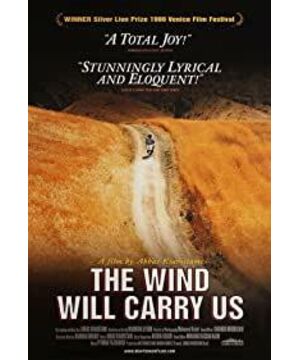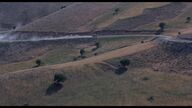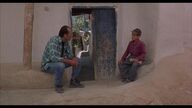>Continues the theme of "The Taste of Cherry"'s discussion of life and death (it seems that the earthquake in Iran gradually affected Abbas to think about life and death), but unlike Abbas's usual work, this film depicts a slightly deviated A strangely coloured village of Abbas's usual realism (like a paradise indeed), especially the long shot of milking a cow underground, with Becha reciting poetry outside the painting, with a touch of grotesqueness.
>People are more like props to Abbas, and they take part in the composition and form the atmosphere. The whole film reveals the solemn and quiet life breath.
>A compendium that captures the elements of Abbas' previous works: sincere, kind but not overly enthusiastic child characters, life and death, and perhaps love. The love depicted by Abbas seems to tend towards a man who expresses his love for an indifferent woman as if he is actively begging.
>The humanistic feelings of Abbas are revealed everywhere. Different from previous works, Abbas paid attention to various creatures in this film: turtles, dogs, dung beetles, and gave unprecedented metaphors in the sequence of works (Abas doing this thing makes me feel a little deliberate).
>Repeat: Go high up in the cemetery and look for a cell phone signal. (Scenes, lines, plots are repeated)
>Abbas's audiovisual language likes to cover up the characters: in "Where", the first clue is seen in covering the face of the little boy who is struggling to find to hang the audience's emotions. If you don't see him, hear his voice first.
>Abbas' films are generally weak in storytelling, usually not letting you dig for truth through narrative, but relying more on a " wise character " (artisan in "Where", Sabjian in "Close-Up", The old man in "Life and Flow", the museum worker in "Cherry", the doctor in this film), clarifies the truth in the "road" and the dialogue in "walking". The movie is more inclined to let the audience take the place of the protagonist of the narrative, see the environment and scene seen by the protagonist, follow the protagonist to understand nature, and then obtain the shock from nature. To be honest, it's kind of boring to watch too much...
> A hymn to the great, awe-inspiring, tenacious life that is implicit and contained in the camera.
> The daytime is mostly in the film, only the daylight becomes dim at the end. Looking closely at each of Abbas's works, they strictly abide by the natural laws of the rising and setting of the sun, and this film regards the whole story as "one day", and the sky gradually becomes dark when death comes.
> Perhaps Abbas' critique of the media began in "Close-Up".
View more about The Wind Will Carry Us reviews







